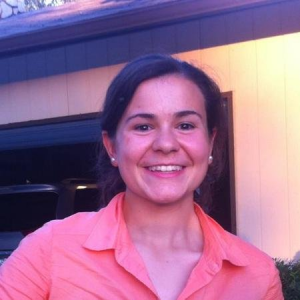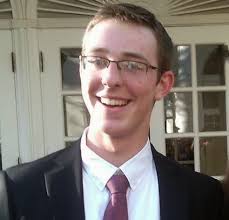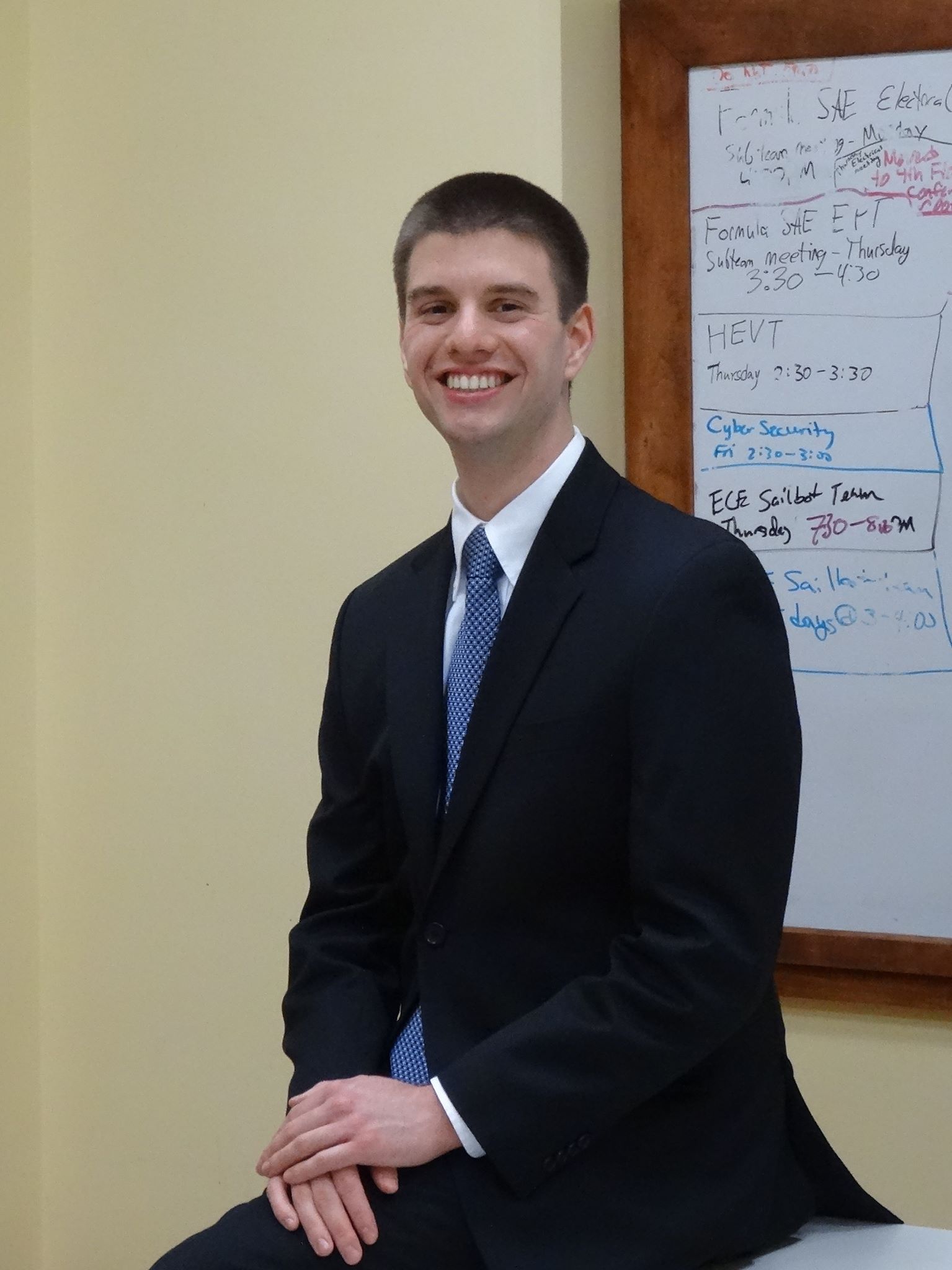Raphael Elspas
2014 REU Summer Research Participant at University of Maryland
In the summer of 2014, I attended the Transportation Electrification (TE) REU program. I have had multiple research positions in the past, but this program clearly stood out as my favorite research so far.
Originally, I was undecided between what field of engineering I wanted to study. However, after conducting research in this program, being exposed to the study of electrical engineering, and seeing how electrical engineering is applicable in everyday life, I decided to transfer to the ECE department at University of Maryland.
I had some great experiences at the TE REU; I remember one moment vividly: I sat in a chair with rolling wheels in front of a mammoth instrument. I set my hands on the desk and pulled myself towards the table the instrument was lying on, excited to get to work. A graduate student mentor behind my shoulder pointed at certain parts of the apparatus and gave me instructions on how to operate it. I did as he instructed, and glanced at the monitor which allowed us to see inside the device. Geometric shapes of every shade filled the screen. The arrangement of shapes fit together like a puzzle, giving the impression that they could be found in an Escher painting. This machine, a scanning electron microscope (SEM), opened my eyes to what different materials look when zoomed in millions of times. I was able to use this tool, the SEM, along with many other instruments to further my knowledge as well as research a field of electrical engineering in the TE REU program.
The TE REU program was unique compared to other research I have done in the past. Like other research programs, participants had the opportunity to work in labs, work with graduate students and get their hands on cutting edge equipment. However, in addition to what can usually be found in a research program, I, along with the other participants were taken to an automotive company to see actual electric cars. They were taken apart for us to see inside; each interior was fascinating. The engine was replaced with batteries and a massive motor. From seeing a completed model of something that came out of past research, I could see where the research I was doing was leading—something each researcher inevitably hopes for.
One thing I appreciated about the TE REU program was that we had the opportunity to make engineering presentations. Not only did each member of the TE REU program present their research at each meeting (which made me feel more informed about electrical engineering), but each week we also discussed and alternated giving presentations about an engineering ethics question. I learned many things that aren’t often addressed in an academic setting, but are excruciatingly important when research is performed at a graduate level. This, I am sure, will prepare me for work in a professional engineering setting where I will have to give presentations more often. I am also certain that the experiences that I had and the skills that I gained from the TE REU will better prepare me in my career in engineering in the future.

Kelly Fernandez
2014 REU Summer Research Participant at University of Maryland
This past summer, I participated in the 2014 Transportation Electrification (TE) REU program. I had an internship with a company the summer beforehand, and therefore wanted to understand how a career in research differed from a career in industry. By completing this REU, I now am confident that I want to pursue a career in academia and complete research.
Before completing this REU, I had little-to-no knowledge and experience with research. I did not know what to expect at all from this program. At the very beginning of the program, all students were given the topic that they were to research. In particular, my project was to optimize the efficiency of an on-board car charger for plug-in hybrid electric vehicles. I was really excited about this project because I was going to be researching cutting-edge technology! This is only one example of the really cool projects that were given to students.
After receiving my project, I was given multiple resources and reference papers to research. This may sound boring, but in actuality it was rather exciting. I was learning and teaching myself new material from recent publications. Again, this is cutting-edge stuff! After reading over publications, I was finally able to use the material that I had learned and begin my project. By doing so, I was using an accumulation of material that I had learned in my electrical engineering courses and from the research program. By the end of this program, I had to prepare a presentation, poster, and paper that outlined all that I accomplished and learned throughout this program.
By completing the TE REU, I now have a much clearer understanding what a career in research is like. I know for a fact that this is the career path that I want to pursue! Despite also gaining more knowledge in electrical engineering material, I also gained better reading skills, something that is very important for a field in research. This REU also required me to use a large range of software such as Matlab & Simulink, two pieces of software that I now feel very comfortable using. Lastly, I have gained much more confidence in my presenting and professional skills. I now am confident to give presentations and explain scientific material to large sums of people.
Bryan Faulkner
2015 REU Summer Research Participant at University of Maryland
During the summer of 2015, I participated in the Transportation Electrification (TE) Research Experience for Undergraduates (REU) program, at the University of Maryland-College Park. I have conducted previous National Science Foundation (NSF)-sponsored research in the past. While my previous research position was rewarding, this experience stood out to me in a particular way for many reasons.
The TE REU program provides an excellent opportunity to actively engage in interesting, rewarding, and meaningful research. Day after day, I found myself enjoying what I was studying and working with more and more. Throughout the experience, in addition to gaining newfound knowledge, my research skills were honed, my presentation skills were greatly increased, and I was able to submit my first conference paper! As a result of the fascinating research this past summer, I plan to pursue graduate studies in the field of power electronics to assist companies, such as Tesla and Boeing, in the efforts to greater electrify different forms of transportation.
Since my freshman year of college, I have had a great fascination and love of the electrical engineering discipline. One question that I always struggled find the answer to was, “What area of electrical engineering do I concentrate?” I was always torn, as I enjoy almost all of my classes. One vivid moment, my “aha” moment, cleared everything up for me this past summer. As I was sitting at my desk in the lab, while reading a journal paper, everything clicked. I realized that I could manipulate an existing circuit, in many new ways. Using a sinusoidal input voltage, I could either step the constant output voltage of our circuit either up or down, while using math and programming! After this moment, I knew that I wanted to continue pursuing research in the field of power electronics as it requires a vast amount of knowledge across many different electrical engineering concentrations. Simply put, I do not have to specialize in a single concentration, but I can work with many different parts of the electrical engineering field.
I am confident that my Transportation Electrification Research Experience for Undergraduates at the University of Maryland-College Park this past summer will prepare me well for my future career. I highly encourage any young engineer looking to further their career, experience, and knowledge to apply to this program.
Luke Bittner
2015 REU Summer Research Participant at University of Maryland
The NSF Transportation Electrification REU Program at the University of Maryland opened my eyes to the world of research and aided in my decision to pursue graduate studies. During the program, I worked with a diverse group of students and faculty to develop critical technologies such as power electronics, fuel cells, and batteries. I witnessed firsthand how researchers design experiments to investigate and solve problems. Spending time with professors and graduate students illustrated to me both the challenges and successes of scientific progress, and I now realize how exciting research can be.



